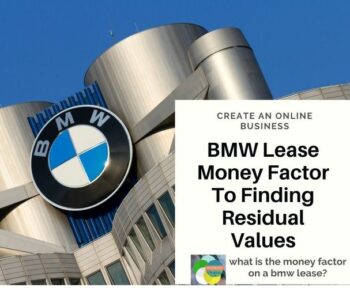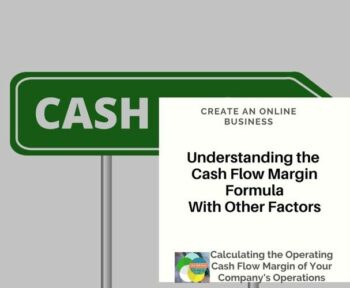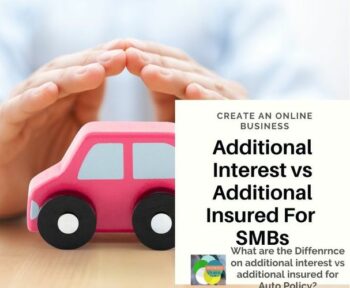Many business owners lease automobiles for their company’s usage. Because the low monthly payments and the flexibility to switch cars frequently are attractive for them. But, in order to keep up with new technology and safety features are both essentially attractive to the business. Leasing a car for business is targeting to know you important tips before leasing a car for your business.
Simple Suggestions
When leasing a business automobile, you have two options: an open lease, which is similar to renting, or a closed lease, which is equivalent to purchasing the car.
During the lease period, you can deduct the costs of the lease and driving expenses, but only for the proportion of time the vehicle is used for business reasons.

Mileage charges and normal wear and tear are included in the lease duration; any additional costs must be paid at the conclusion of the lease term.
If the leasing agreement provides the option to purchase the vehicle at the end of the lease period, you may be eligible to deduct the cost of the vehicle from your income.
Is a leased vehicle the best option for your company? Here are some things to think about when deciding whether to lease or buy a corporate car, as well as how to lease that car (including options) and the tax ramifications of doing so.
What You Should Be Aware of Lease Term?
Open-End vs. Closed-End Lease: Which is Better?
As soon as you sit down with a vehicle dealership to negotiate a lease for a company automobile, you will almost certainly be presented with two options: an open-end leasing arrangement and a closed-end leasing arrangement.
The lessee is responsible for the difference in values. That are the residual value (which is estimated resale value) and the actual resale value at the end of the lease term in an open-end lease arrangement.
Instead, the lessee is solely responsible for additional mileage and extraordinary damages at the conclusion of a closed-end lease.
Return on Investment (also known as Residual Value)
The term “residual value” refers to the value of the vehicle at the end of the lease term, which is determined by the quantity and rate of depreciation applied to the vehicle. It is true that the length of your lease will have a negative impact on your residual value, because the car will be older when you return it.
Length of Term
Do you know Shorter-term leases are more expensive than long-term leases?. Because the residual value of the property depreciates more rapidly in the first 24 months of the lease. Negotiating a longer lease will almost always result in a reduced monthly payment. But electing to end a longer lease early could result in significant financial penalties.
Average Annual Mileage Estimated
Before you sign a lease agreement, you will need to figure out how much mileage you will put on the car each year. In most cases, a lease will have 12,000 miles in annual mileage restriction. However, if you believe you will be driving more than 12,000 miles per year, it is worth paying an additional fee to cover the additional mileage. If you do not, you will be responsible for the excess mileage you have accumulated at the end of the lease.
Who Is Eligible to Deduct Business Travel Expenses?
A small business can deduct expenses for driving a car that it owns or leases, but only for business purposes; otherwise, the deduction is not allowed. Lease fees and driving expenses might be deducted by your company. The leasing costs may also be eligible for depreciation depending on the sort of lease you enter into.
When it comes to company transportation, whether you lease or purchase a vehicle, you can only deduct business costs, not personal expenses. The cost of commuting to and from work is a personal expenditure.
Employees who use corporate vehicles but are not compensated by their employer will no longer be able to deduct the costs of doing so because the Internal Revenue Service has suspended various itemized deductions until January 1, 2026.
Deducting the Costs of a Commercial Lease
It is possible to deduct the ordinary and required lease payments for an automobile that you use for business purposes.
If the lease is for a business purpose, there are two sorts of leases that qualify for tax deductions, depending on the type of contract:
- Depending on whether the agreement is a legitimate lease, you may be able to claim the payments as rent.
- If the lease is actually a conditional sales contract, you must deduct the amount throughout the course of the lease term.
There is a conditional sales contract when at least a portion of the payments is utilized toward the purchase. Or when the payments permit the taxpayer to acquire property under favorable circumstances. The Internal Revenue Service has established the following conditions that must be met in order to assess if a conditional sales contract exists:
- How much of each payment is set aside as equity under the agreement (ownership)
- If you obtain ownership of the vehicle at any stage,
- If the total cost that you have to pay for property represents a disproportionately significant portion of the price. You would have to spend to acquire ownership of it. Then, you should consider selling the property.
- If you pay significantly more than the current reasonable rental value, you are in violation of the law.
- If you have the chance to purchase for a minimal sum of money, do so.
- If the agreement specifies that a portion of the payments will be treated as interest, or if the payments are easily distinguishable as interest.
Lease Costs Are Depreciating
The IRS refers to this as a conditional sales contract. And if your car lease has one, you have to depreciate the cost of the car lease, as detailed above. There are no Section 179 deductions or bonus (special depreciation) allowances available if you only utilize the vehicle for 50 percent or less of the time in a calendar year. Additionally, you must calculate depreciation using the straight line approach over a five-year period.
Deducting the Costs of Driving
When it comes to deducting driving expenses for your leased corporate automobile, you have two alternatives. The alternatives are dependent on whether you want to deduct actual expenses or the annual standard deduction. You may be able to deduct business driving expenses for a leased car if you meet certain criteria and do so within specific limits.

First and foremost, you must utilize the vehicle for business reasons only, and not for personal ones, for at least 50% of the kilometers driven (and you have to prove the amount of business driving each year).
Then, in order to deduct the lease payment, you must compute driving deductions using the real expenses method (rather than the normal mileage deduction) rather than the standard mileage deduction.
Lastly, a higher-valued leased vehicle can be subject to what the Internal Revenue Service refers to as a “inclusion amount,” which is a reduction in the amount that can be deducted for the lease cost.
Difference Between Purchasing And Leasing an Automobile
When you purchase a car, you can either pay cash or take out a car loan, after which you will receive title to the vehicle. If you finance the vehicle, you will accumulate equity in the vehicle over time. Although automobiles are depreciating assets, they can occasionally deteriorate more quickly than a person’s ability to accumulate equity through payments.
When you lease a car, you make lease payments but never obtain ownership of the vehicle or accumulate equity in it. When the lease period is over, you just return the vehicle.
What Are The Drawbacks of Leasing a Vehicle?
The most significant disadvantage of leasing is that you do not accumulate any equity in the vehicle as you make lease payment after lease payment. Lease lengths can range from 2 to 5 years, but they can be terminated earlier if necessary; nevertheless, early termination will often result in a cancellation fee.
What Are The Benefits of Leasing a Vehicle?
People who lease cars can get a new automobile every few years if they so desire, while keeping their payments reasonably consistent if they lease the same make and model of car each time around. Leasing also relieves the lessee of the responsibility of disposing of the vehicle at the conclusion of the lease term, whether through a private sale or trade-in for another automobile.
Important Tips for You
To Purchase or Lease a Vehicle For Your Company
The individual conditions of your firm will determine whether it is more cost-effective to purchase or lease a company car, but the following are important considerations:
Due to the fact that lease payments only cover depreciation and interest, as well as taxes and fees, lease payments are typically less expensive than monthly loan payments.
If you lease a car, you will almost certainly be responsible for excess wear and tear expenditures; however, the condition of the vehicle is considered when determining the fair market value of a purchased car.
You can deduct business miles for both leased and purchased automobiles; but, if you use actual mileage for leased vehicles, there may be certain restrictions on what you can deduct.
The most significant difference between leasing and purchasing a business automobile is your ability to depreciate the cost of the vehicle. The cost of a purchased vehicle can always be deducted from your tax return, but some types of leases do not allow for depreciation.
The Procedure For Leasing a Business Car
The leasing agreement contains the monthly payments and other expenses, as well as the length of the lease and the amount of miles included in the lease price, among other things. The lease agreement allows you to return the car at the conclusion of the term, but it also allows you to purchase the vehicle if that option is included in the leasing agreement.
Prepayment penalties may apply if the lessee terminates the lease early, with the amount of the penalty varying based on how early the lease is terminated by the lessee.
Excess mileage in excess of the agreed-upon mileage is the responsibility of your firm. A further possibility is that you will be liable for these charges if there is “excess wear and tear,” as stated by your lease agreement.
To Deduct The Cost of Leasing an Automobile For Business Purposes
Business expenses include all usual and reasonable costs for driving expenses and other leasing costs, such as lease costs, insurance, and maintenance. You can deduct all of these costs as business expenses. If you use the car for both business and personal purposes, you must separate the personal portion from the business portion and only deduct the mileage amount from the business portion. For example, if you use your car for business reasons 60 percent of the time, you can only deduct 60 percent of the costs.
The monthly payments as well as the expenditures of driving expenses are considered deductible expenses. When it comes to deducting driving expenses, you can choose between the IRS standard mileage and real expenditures.
Depending on how much time you spend driving your leased corporate automobile for business purposes each year, you may be able to deduct the cost of depreciation during the life of your lease in addition to your regular yearly expenses.
In order to be eligible for depreciation deductions, the lease must meet the IRS’s definition of a conditional sales contract. In this sort of leasing arrangement, the lessee has the option to purchase the vehicle at “advantageous” terms at the end of the lease term.









